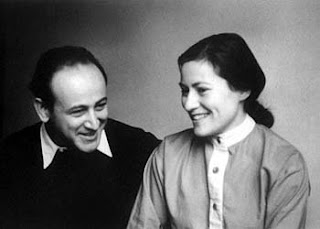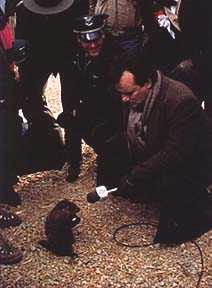i.m. Dr. Theresia Liemlienio Marshall (1940-2007)
Once again I have to record a very sad event. My good friend and longtime colleague, Theresia Marshall, died unexpectedly in the early hours of New Year’s Day, 2007.
Where to begin when writing about Theresia?
We met first in (I think) 1992, when I was just beginning as a tutor at Auckland University. Theresia had already been teaching in the English Department there for a few years, while working towards her PhD, and seemed dauntingly knowledgeable about the various papers and their practices. She was never one to pull rank, though, and we hit it off from the start.
We really got to know each other, though, when she rang me up one day early in 1996 to ask if I’d like to help teach a writing paper at Massey Albany, the new campus which had just opened up on Auckland’s North Shore.
As it happened, I was rather anxious for a job at that moment, so the offer was little short of heaven-sent. For the rest of that semester we shared an office in the prefabs in the muddy building site which was then all that was visible of Massey’s Auckland venture (the main campus had scarcely been begun at that point). I’ve been grateful ever since for this act of kindness.
Virtually every semester since then we’ve worked together teaching Written Communication (with the odd lecture in New Zealand literature) at Massey. There have certainly been ups and downs, shifts of responsibility and premises, but this much has stayed constant over the last decade: we’ve always been supportive of one another.
Publisher
Soon after she started to teach at Albany, Theresia began a new career as a publisher. The first book issued by her imprint, The Pohutukawa Press, was Apirana Taylor’s fine book of poems
Soft Leaf-falls of the Moon, in 1996. In fact, she told me she founded the press after hearing Api Taylor, then writer-in-residence on Massey’s Palmerston North campus, remark that he couldn’t find a publisher for his poems. She immediately volunteered to publish them herself, so great was her respect for his work.
The next book, a year later, was Robin McConnell’s book of sports poems
Nothing is as Physical as a Poem, a characteristic piece of fine design married with powerful writing.
A year later, in 1998, she very generously issued my own first book of poems,
City of Strange Brunettes, in tandem with a book of poems about the 1930s by Lee Dowrick,
This was Then.
The Pohutukawa Press (and its brother imprint, Christian Gray New Zealand) never dealt in bulk or mass-market titles. There was always a steady demand for Api Taylor’s poems, plays and short stories, and for the various titles she continued to issue, mainly indigenous and Pacific Island poets (John Pule and Dreu Harrison were two I remember reviewing, but there were of course many others). They have and will continue to hold a place of honour both in the history of poetry and the history of fine printing in this country.
Writer
Theresia’s own book of poems,
The Pohutukawa-Beringin Tree, was published by Ron Holloway’s Griffin Press in 1993 (a second edition came out in 1997). It’s a pioneering book in the history of multicultural writing in this country – particularly women’s writing. Theresia’s title, and the poems within, draw attention to her own Melanesian origins, and the ways in which both New Zealand and her native islands had shaped her.
Further information on this can be found in some of her own critical writings, as well as the poetry she continued to write throughout her life (I remember encouraging her, the last time we met, to work more concentratedly on her long-promised second volume of poems. She said she would. I hope the materials for such a book remain among her papers. Hers was a unqiue voice in Pacific poetry, as the samples I’m reprinting below will, I’m sure, demonstrate).
Among the prose works I can recall offhand are two long pieces contributed to
brief during my editorship of that journal: "Kendrick Smithyman," in the special
Smithymania issue (#26 (2003): 94-100), and a comprehensive review of Paul Sharrad’s
Albert Wendt and Pacific Literature in issue #29 (2004): 93-100, where she discusses some of her own deeply-considered reactions to the question of Pacific self-representation.
Here, then, are two of the poems she published in
brief (the intensely characteristic formatting is, alas, impossible to reproduce in the context of this blog entry):
yarn-spinning
(for c and l campbell)
hello officer of the law said i
on that damp night
of two twelve two thousand and one,
what have i done now?
alright – the truth is that the
commander
of her majesty’s navy
requested the pleasure of my company
to dine with his chief aboard the frigate.
the drinkies were just starting to make merry
when the chief’s sister drove us all off
to a brainstorming tour of the garden of eden where
our raconteur friend rendered clusters of insight into vanuatu-phlegm where
our story-teller cobber strung a rough sketch of singapore-sterility where …
our balladeer mate sang of jakarta-muddle
in polished final version, however, stifling bush-poetry vitality
altogether
frustrating my public tendency
to locate expectation of cultural conduct
in place of birth.
the air of confusion refused to clear
when we sat down to dinner at last
i ploughed into the kebab
while others were still serving
(and my parents rolled over in their grave)
i shouted
i honked
my appreciation thrice
nevertheless at the close
now i am on my way straight home of course.
it was anything but straight?
oh well - at least allow me my turn to say
"cobbers mates and friends
kia ora thank you for a whale of a time –
have a riot of delectable diversions at christmas!"
before you lock me up for the night.
[
brief #27 (2003): 61-62]
harbour-bridging
into the shade of seagulls
one sparrow dived to
snatch a crumb or two from
under her eyeshadows
into the rays of sunrise
many powerpoles cast a track to
race a railfence or two alongside
the shadow of her eyes
in the shades and shadows
of bread and buttering
peace worn to a shadow
words catching at shadows,
a delicate shade of meaning
not afraid of its own shadow
she is a shade better today
may her shadow never grow less
[
brief #30 (2004): 70].
Theresia Marshall was a subtle and painstaking scholar (her PhD work indexing the New Zealand contributors to Australian periodicals in the early twentieth century has already proved invaluable to more than one research project since), a gifted poet, an inspired teacher and a generous and insightful publisher.
I’ll miss her very much. So will all the hundreds of students whose lives she touched at Massey and elsewhere.
One of my last memories of her is her childlike delight in being taken out to a surprise lunch by this semester’s writing students. They knew she was something special. I hope the rest of us appreciated her enough while we had her.
One last story to conclude on:
One of Theresia’s jobs was working as Academic Director for a Language School in Newmarket. One day, whilst walking down a sidestreet there, she was pelted with eggs by some pakeha schoolboys, who shouted that she should "go home."
Most of us would be pretty upset by such an experience.
Theresia, however, took note of the uniforms they were wearing, tracked down the school they came from, went there, demanded to see pictures of the pupils, found the faces of the two boys, had them hauled into the headmaster’s office, forced an apology from them, and made them acknowledge their shame.
That’s the kind of courageous, resourceful person that she was. She wasn’t content to accept, fatalistically, that that’s the kind of country we’re living in now.
Peace and love to you, Theresia. We won’t forget you -- ever.













.jpg)
+Ellen+Portch.jpg)



.jpg)
.jpg)
.jpg)















